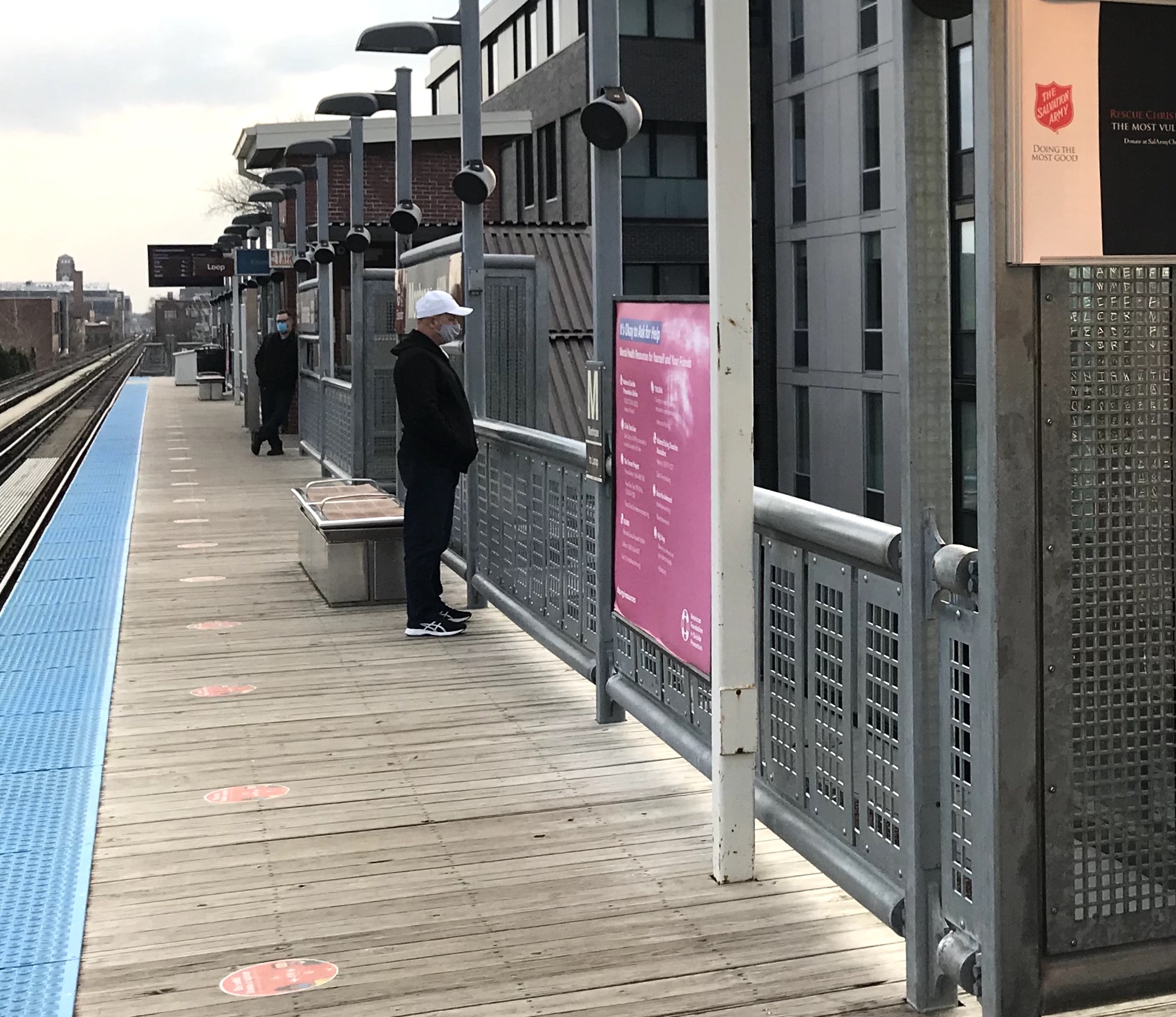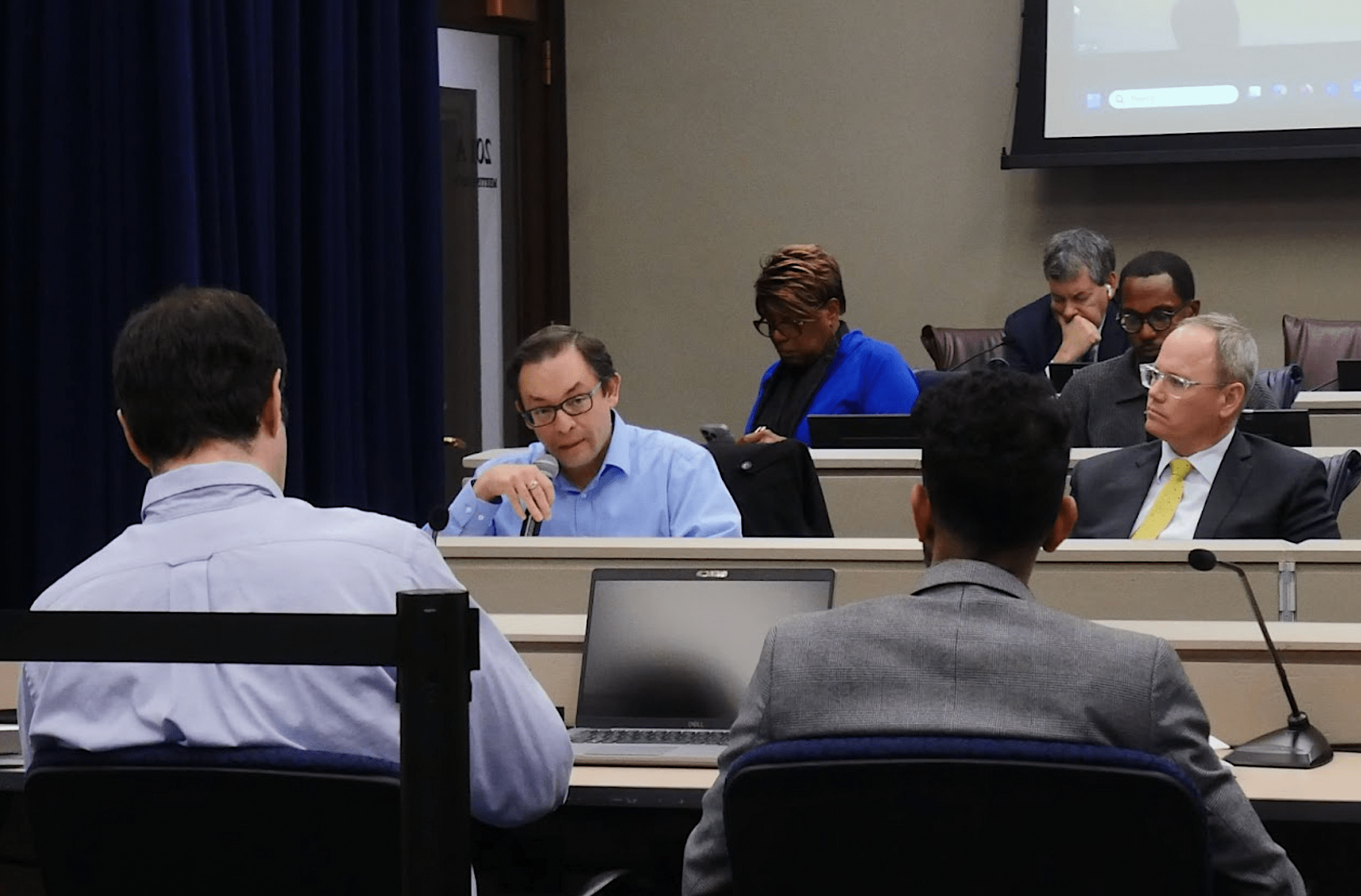Creating a big city budget during a global pandemic, an economic crisis, and a period of racial reckoning is an unenviable task. For example, Chicago currently has a $1.2 billion budget shortfall. Mayor Lori Light's new $12.8 billion budget and a $94 million property tax hike, which both narrowly passed the City Council today, are sure to make plenty of people unhappy.
These include police reform activists, who hoped that a significant portion of Chicago Police Department funding would be reallocated, and some homeowners who will be paying more in their monthly tax bills. (Owners of homes worth $250,000 or more are projected to pay less than $5 a month more next year.) The budget passed by a 29-21 margin, while the tax increase passed by a separate 28-22 vote, according to a report from Block Club Chicago's Justin Lawrence.
Add transit riders and motorists to the list of folks who may grumble about the the new budget.
The plan diverts $16 million a year in ride-hail tax revenue, currently earmarked for CTA operations, to the city’s general budget, a move that’s was strongly protested by a coalition of local nonprofits, led by the Active Transportation Alliance, including a petition drive. "The CTA cut included in this budget is bad news for essential workers riding transit and the people keeping it running during the pandemic," said ATA spokesman Kyle Whitehead after the budget passed. "The revenue from Uber and Lyft fees should be supporting public transit, as mayors Lightfoot and Emanuel promised. We’ll fight for that to be restored in future budgets."
"It’s certainly disappointing that the CTA will lose out on an important source of local revenue at a time when they’re already stretched thin," said Jeremy Glover from the Metropolitan Planning Council, another coalition organization, in the wake of the budget news. "The CTA is a lifeline for the region’s essential workers, and for the communities hit hardest by the pandemic... Diverting the ride-hailing fee revenue away from transit undermines the entire rationale for the fee, which is meant to encourage people to choose more sustainable modes of transportation."
Drivers will be paying a bit more at the pump, since the city gas tax has been raised from $0.05 to $0.08. I've heard some complaints from car owners that the change will spur Chicago motorists to buy cheaper gasoline in the suburbs or Indiana. But, hey, if a $0.45 hike in the cost of an average fill-up makes you think it's worth burning more gas by driving to the 'burbs or across the Hoosier Curtain, you might not be the sharpest tool in the shed.
Unfortunately, UIC urban planning professor Kate Lowe thinks it's unlikely unlikely the gas tax increase will result in less driving. “Relative to all costs associated with automobile use, a three-cent gas tax [increase] is unlikely to change travel behavior, especially given a built and social environment that in many ways encourages driving," she told Streetsblog.
Motorists are also sure to be upset about the budget including a measure to lower the threshold for speed camera tickets from to 6 mph, meaning that you'll be issued a $35 ticket for doing 36-39 mph in a 30 zone. (The first offense will only result in a warning.)
The city said the new rule is justified by spike in fatal traffic crashes during the pandemic, when there has been less driving and more speeding. While there were 72 traffic fatalities on Chicago streets from January through September 2019, there were 100 traffic deaths during the same period this year. Most of the increase has been among motorists: 28 out of the 72 fatalities in 2019 were car occupants, but this year that number has risen to 58, a 107-percent increase.
That argument is somewhat compelling, since fairly minor changes in driver speed can make a big difference in the chances that a pedestrian or bike crash will be survivable or fatal. On the other hand, it's not clear that Chicago's current spike in fatalities can be blamed on drivers going a few miles over the limit, as opposed to truly egregious speeding by 10 mph or more.
It was a tough call, but I didn't endorse making the change during the thick of the pandemic. It will almost certainly result in lots of Chicagoans getting $35 tickets for relatively low-level speeding. That could be a significant hardship for working-class residents who drive to work during the current economic downturn, many of them from the Black and Brown communities hit hardest by COVID-19. In addition, a move that seems so obviously motivated by the need to plug the budget hole is likely to renew the backlash against automatic enforcement, which could result in more statewide efforts to ban the cams altogether.
The Active Transportation Alliance has a similar POV on the issue. "Changing the ticketing threshold without fully understanding how the program impacts low-income Black and Brown Chicagoans sets bad precedent," said Whitehead. "Mayor Lightfoot and City Council must conduct a racial equity impact assessment to inform future changes."
Oboi Reed, head of the mobility justice nonprofit Equiticity, said he was strongly opposed to the change in ticketing policy. "Automated enforcement in Chicago is already racially inequitable, punitive, and financially harmful to Black and Brown people, and contributing to the city’s racial wealth gap. Automated enforcement in our city is structurally flawed. It is in need of deep transformation, not extending the system to ticketing more Black and Brown residents."
But since the speed cam measure passed, let's hope that it results in more drivers paying better attention to their speedometers, and a resulting drop in serious and fatal crashes, not just a new wave of traffic fines that disproportionately impact working-class Chicagoans. That might not achieve Mayor Lightfoot's goal of raising millions in ticket revenue, but it would be a win for safety, as well as equity.
One bright spot in the budget is the passage of Lightfoot's multi-year Capital Plan. In addition to the repair and replacement of bridges, shoreline revetment, street resurfacing, streetlights, and traffic signals, the infrastructure initiative includes $112 million for sidewalk repairs and $49 million for “improvements to bike lanes, priority bus routes, and pavement markings.”
However, Reid said wants more assurance that the infrastructure spending plan will focus on underserved communities of color. "We are still not clear on how racial equity is operationalized in its implementation. We know for sure that equal menu funding for aldermen [each ward is given $1.3 million a year in discretionary funds for infrastructure] is not racial equitable, given many predominantly Black and Brown wards have far greater needs and struggle with far more egregious inequities than predominantly white wards."





